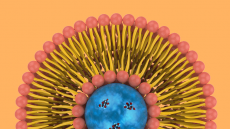Researchers question the 'optimal' vitamin D dose for infants

The new data, reported in JAMA, comes after Canadian researchers compared the effects of different vitamin D supplementation dosages in breastfed infants, finding that nothing but a super high (and potentially unsafe) dose of 1,6000 raised and maintained blood plasma concentrations - plasma 25-hydroxyvitamin D (25[OH]D) - within the range recommended by many international experts and paediatric societies.
However, the research team - led by Professor Hope Weiler of McGill University, Canada - found that all dosages raised and maintained plasma concentrations within a lower range recommended by the United States Institute of Medicine (IOM).
"Our primary objective was to establish a vitamin D dosage that would support a plasma concentration of 25(OH)D of 75 nmol/L or greater in 97.5% of infants at 3 months of age," explained Weiler and her team.
Weiler explained that when it comes to vitamin D, there is "sometimes a feeling that more is better."
"But until now, no one had compared the popularly recommended daily doses of vitamin D to see what will result in optimal health for infants," she said. "We were very glad to be able to do this."
"All dosages failed except the highest dosage, which appears to be too high," Weiler and colleagues confirmed - noting that the only the 1,600-IU/d dosage of vitamin D met their criteria of raising plasma 25(OH)D to above 75nmol/L in more than 97,5% of the infants.
"This dosage was discontinued because most infants in that group developed elevated plasma 25(OH)D concentrations that have been associated with hypercalcemia," they said.
Essential vitamin
"Vitamin D is important during periods of rapid bone mineral accrual," said the research team. "Nursing infants are susceptible to vitamin D deficiency because vitamin D in breast milk is limited."
Despite this, there is still a debate on the where the optimal target level for vitamin D should be. Indeed, an accompanying editorial by Dr Steven Abrams, of the Baylor College of Medicine, USA, suggests that the question of what the plasma 25(OH)D concentration target should be 'remains unanswered.'
"If the target is 75 nmol/L or higher, then vitamin D intake of 400 IU/d is not enough for a substantial proportion of infants," he commented.
"However, another question that needs to be answered is whether there are non-bone health reasons to target a plasma 25(OH)D concentration greater than 75 nmol/L."
The expert added that pending such information, people should be reassure that the study confirms that a daily vitamin D intake of 400 IU/d in infants, as currently recommended, "leads to adequate plasma 25(OH)D concentration for identified physiological functioning related to bone health."












